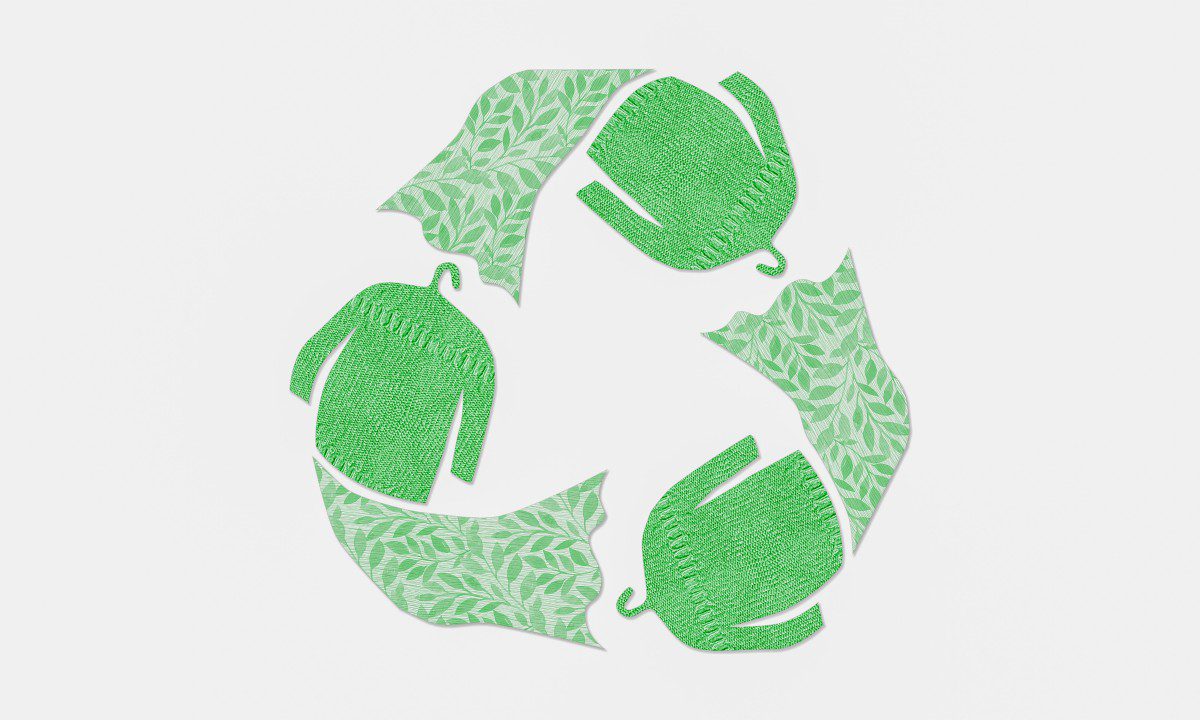H&M Foundation will support The Fashion ReModel over the next three years, aiming to scale circular business model solutions.

H&M Foundation will support The Fashion ReModel over the next three years
The H&M Foundation’s philanthropic support for Ellen MacArthur Foundation’s The Fashion ReModel underscores its commitment to a just transition for the fashion industry. The project could significantly reduce greenhouse gas emissions, help shift the industry away from low garment usage and drive sustainable growth, contributing to the decarbonisation of the textile sectors if widely adopted.
First revealed at the 2024 Global Fashion Summit in Copenhagen, The Fashion ReModel is not just about changing practices for a few brands—it aims to inspire and enable the entire industry to adopt a new way of doing business. Demonstration projects like this are not about solving everything all at once, they’re about getting started, building confidence, showing other actors in the system what is possible, and increasing the minimum bar over time. By delivering a replicable roadmap, the project is creating conditions for systemic adoption of circular business models.
“For a circular economy for fashion to become the norm, we must accelerate efforts that not only redesign the products of the future but also the services and business models that deliver them and keep them in use,” said Jules Lennon, fashion lead at the Ellen MacArthur Foundation, in a statement. “We’re excited to have philanthropic support from H&M Foundation as we work to make circular business models the norm. We welcome business-led action towards a world where, instead of being worn once and discarded, clothes can be used many times – threaded through the lives of many people.”
The Ellen MacArthur Foundation – committed to researching the benefits of a circular economy and how it can contribute to solving global challenges like climate change and biodiversity loss – envisions that this project will be a roadmap for the most sustainable business of fashion with the support of policymakers. By sharing, reusing, repairing and recycling products, the life cycle of products is extended, reducing waste. This circular economy would eliminate the linear economic model in the fashion industry, which is based on a take-make-waste pattern.
By 2030, circular business models could be worth USD 700 billion. “We must decouple revenue from the production of new garments and the use of natural resources,” said Christiane Dolva, head of innovation, research, and demonstration at H&M Foundation. “Embracing circular business models is essential—there’s simply no credible path to meeting global climate and biodiversity targets without transforming the way we do business.”
Ellen MacArthur Foundation’s ‘Fashion ReModel’
In response to the fashion industry’s take-make-waste model, which sees millions of tonnes of clothing produced and discarded each year, there is a pressing need for change. Keeping this in mind, the Ellen MacArthur Foundation’s ‘Fashion ReModel‘, launched at the Global Fashion Summit in Copenhagen, aspires to shift the industry toward a circular economy.

A circular economy and how it can contribute to solving global challenges like climate change and biodiversity loss
Key participants of the demonstrative project include Arc’teryx, H&M Group and its brands Arket, COS and Weekday, Primark, Reformation, and Zalando—members of the Ellen MacArthur Foundation’s Network of Strategic Partners, Partners and Members. The Fashion ReModel invited these brands to scale up circular business models such as rental, resale, repair and recycling, while curbing the production and consumption of new materials in order to make a circular economy for fashion a reality.
“In order to challenge conventional linear models and create a new normal, brands must decouple revenue from production by accelerating efforts to redesign the products of the future, as well as rethinking the services and business models which deliver them to customers and keep them in use. The fashion industry is rooted in reinvention and we welcome business-led action towards a world where, instead of being worn once and discarded, clothes can be used many more times,” Jules Lennon, Fashion Lead at the Ellen MacArthur Foundation, expressed.
The Fashion Remodel initiative marks a significant step toward decoupling revenue from production, fostering sustainable processes and subsequently ensuring a more responsible future for fashion. Per the website of Ellen MacArthur Foundation, ‘At present, there are four main customer-facing business models that keep products in use in the economy and have the potential to decouple revenue streams from production and resource use: repair, rental, resale, and remaking… Circular business models allow customers to extend the life of their most treasured clothes, offer the potential for items to journey through the lives of many people, and can even go beyond a physical product into a digital dimension.’

The Fashion ReModel invites brands to scale up circular business models such as rental, resale, repair and recycling
The Fashion ReModel has been endorsed by British Fashion Council, Camera Nazionale della Moda Italiana, Global Fashion Agenda and Fashion for Good. The Foundation believes that the shared learnings will forge a path towards a resilient fashion industry.
“Circularity is one of the core enablers for fashion’s systemic transformation. Global Fashion Agenda is a proud supporter of the Ellen MacArthur Foundation’s Fashion ReModel project, which can help to dismantle barriers through fostering collective action on circularity. The launch of such a dynamic initiative at Global Fashion Summit aptly aligns with our theme of ‘Unlocking the Next Level’, epitomising tangible action and alliances that can advance the industry,” Federica Marchionni, CEO, Global Fashion Agenda expressed on the official website of Ellen MacArthur Foundation.
A circular economy is driven by design to eliminate waste, circulate products and materials at the highest value and recycle products, to create resilience for the business of fashion, the planet and people. ”The British Fashion Council, through its Institute of Positive Fashion, is leading the Circular Fashion Innovation Network which is focused on accelerating the UK towards a Circular Fashion Ecosystem and preparing businesses for the exciting innovations and opportunities that lie ahead”, Caroline Rush, Chief Executive, British Fashion Council revealed on the official website of Ellen MacArthur Foundation.
Jasmeen Dugal is Associate Editor at FashionABC, contributing her insights on fashion, technology, and sustainability. She brings with herself more than two decades of editorial experience, working for national newspapers and luxury magazines in India.
Jasmeen Dugal has worked with exchange4media as a senior writer contributing articles on the country’s advertising and marketing movements, and then with Condenast India as Net Editor where she helmed Vogue India’s official website in terms of design, layout and daily content. Besides this, she is also an entrepreneur running her own luxury portal, Explosivefashion, which highlights the latest in luxury fashion and hospitality.








